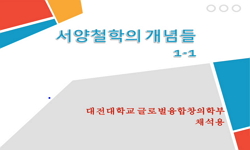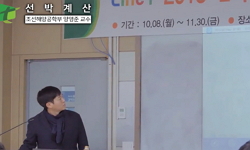The purpose of the study was to search a way to utilize concept mapping for concept learning through solving the problem of selection of related concepts and writing linking words of concept mapping. Based on the purpose, two specific study questions ...
http://chineseinput.net/에서 pinyin(병음)방식으로 중국어를 변환할 수 있습니다.
변환된 중국어를 복사하여 사용하시면 됩니다.
- 中文 을 입력하시려면 zhongwen을 입력하시고 space를누르시면됩니다.
- 北京 을 입력하시려면 beijing을 입력하시고 space를 누르시면 됩니다.
https://www.riss.kr/link?id=A101959647
- 저자
- 발행기관
- 학술지명
- 권호사항
-
발행연도
2006
-
작성언어
-
-
주제어
개념학습 ; 개념도 ; 개념 ; 개념학습 모형 ; Concept ; Concept learning ; Concept mapping ; concept learning model
-
KDC
300
-
등재정보
KCI등재
-
자료형태
학술저널
- 발행기관 URL
-
수록면
117-137(21쪽)
-
KCI 피인용횟수
8
- 제공처
- 소장기관
-
0
상세조회 -
0
다운로드
부가정보
다국어 초록 (Multilingual Abstract)
The purpose of the study was to search a way to utilize concept mapping for concept learning through solving the problem of selection of related concepts and writing linking words of concept mapping. Based on the purpose, two specific study questions were derived; With regard to concept learning, how should the related concepts be selected for concept map, and how should the linking word be written? In order to answer those questions, the characteristics of concept mapping was reviewed. Then, two problems of concept mapping were identified from its use in the real classroom, which were rare use of concept mapping and a lot of wrong- drawn concept maps from students conducted by teachers. The problems were caused because of the ambiguity in selection of related concepts and freedom in writing linking words. In addition, these two causes were evolved since concept learning foundations were not considered. Based on the perspective of concept learning, definitions of concept, criteria for the status of concept acquisition,, concept learning models were briefly reviewed and revisions of concept mapping were suggested accordingly. Especially, related concepts of concept map should include attributes, examples and non-example, sub- and supe-r concepts, and prototypes for concept learning. The relationships between concepts would be emerged naturally when the concepts were selected so as the linking words. Finally, concept mapping procedures for concept learning were suggested.
참고문헌 (Reference)
1 정재구, "초등학교 과학 수업에서 화산 개념의 이해 증진을 위한 개념도 활용" 한국지구과학회 24 (24): 614-624, 2003
2 고은영, "초등사회과수업에서 개념도 활용이 학업성취도와 태도에 미치는 영향" 2004
3 윤기옥, "수업모형의 이론과 실제" 학문출판(주). 2002
4 노태희, "사회적 합의를 강조한 개념 변화 수업 모형의 효과" 43 (43): 110-118, 1999
5 차조일, "사회과 개념 수업 모형의 이론적 문제점과 해결방안" 29 : 227-249, 1999
6 허경철, "교과교육학신론" 문음사 2002
7 배원자, "개념학습에 관한 연구 동향과 과제 교육학연구" 123-134, 1992
8 왕경수, "개념학습과 교수" 21 : 65-85, 2001
9 Novak, "a useful tool for science education Journal of Research in Science Teaching" 937-949, 1990
10 Lee, Y., "Viewing or visualisingwhich concept map strategy works best on problem-solving performance?" 36 (36): 193203-, 2005
1 정재구, "초등학교 과학 수업에서 화산 개념의 이해 증진을 위한 개념도 활용" 한국지구과학회 24 (24): 614-624, 2003
2 고은영, "초등사회과수업에서 개념도 활용이 학업성취도와 태도에 미치는 영향" 2004
3 윤기옥, "수업모형의 이론과 실제" 학문출판(주). 2002
4 노태희, "사회적 합의를 강조한 개념 변화 수업 모형의 효과" 43 (43): 110-118, 1999
5 차조일, "사회과 개념 수업 모형의 이론적 문제점과 해결방안" 29 : 227-249, 1999
6 허경철, "교과교육학신론" 문음사 2002
7 배원자, "개념학습에 관한 연구 동향과 과제 교육학연구" 123-134, 1992
8 왕경수, "개념학습과 교수" 21 : 65-85, 2001
9 Novak, "a useful tool for science education Journal of Research in Science Teaching" 937-949, 1990
10 Lee, Y., "Viewing or visualisingwhich concept map strategy works best on problem-solving performance?" 36 (36): 193203-, 2005
11 Vanides, J.,, "Using concept maps in the science classroom." 28 (28): 27-, 2005
12 Conlon,T, "The effects of concept mapping on college students' comprehension of expository text." 17 (17): 15-36, 2006
13 Jo,I, "The effects of concept mapping on college students comprehension of expository text" Florida State University 2001
14 Gagne,R, "The conditions of learning" CBS College Publishing 1985
15 Novak, J. D.,, "The Theory Underlying Concept Maps and How to Construct Them." 2006
16 Caas, A. J.,, "Online Concept Maps: Enhancing collaborative learning by using technology with Concept Maps" 68 (68): 49-51, 2001
17 Gallenstein, N. L., "Never Too Young for a Concept Map" 43 (43): 44-47, 2005Sep.
18 Novak, J. D, "Learning, creating, and using knowledge: Concept maps(R) as facilitative tools in schools and corporations." Lawrence Erlbaum Associates 1998
19 Chang, K. E.,, "Learning through computer-based concept mapping with scaffolding aid." 17 : 21-33, 2001
20 Novak, "Learning how to learn" Cambridge University Press 1984
21 Riley, N. R.,, "Investigating the use of ICT-based concept mapping techniques on creativity in literacy tasks." 244256-, 2004
22 Smith, P. L.,, "Instructional Design" John wiley & sons, Inc. 1999
23 Kinchin, I. M, "If concept mapping is so helpful to learning biology, why aren’t we all doing it?" 23 (23): 1257-1269, 2001
24 Hannafin,M, "Empirically-Based Guidelines for the Design of Interactive Multimedia" 41 (41): 63-73, 1993
25 Tessmer, "Effects of a diagrammatic display of coordinate concept definitions on concept classification performance" 1986195-205
26 Preszler,N, "Cooperative concept mapping" 33 (33): 30-35, 2005
27 Kankkunen, K, "Concept mapping and peirce's semiotic paradigm meet in the classroom environment." 287294-, 2001
28 Klausmeier,H, "Concept learning and Concept teaching" 27 (27): 267-286, 1992
29 Caas, A. J, "Concept Maps: Integrating Knowledge and Information Visualization." Springer Lecture Notes in Computer Science 2005
30 Medin, D.,, "Are thre kinds of concepts?" 51 : 121147-, 2000
31 Hoffman, R. R.,, "Application of concept maps to web design and web work." Lawrence Erlbaum Associates. 156-175, 2005
32 Safayeni, F.,, "A Theoretical Note on Concepts and the Need for Cyclic Concept Maps." 42 (42): 741-766, 2005
33 Coffey, J. W.,, "A Summary of Literature Pertaining to the Use of Concept Mapping Techniques and Technologies for Education and Performance Support." 2003
34 Caas, A. J.,, "A Summary of Literature Pertaining to the Use of Concept Mapping Techniques and Technologies for Education and Performance Support" Institute for Human and Machine Cognition 2003
35 Tessmer, "A New Model of Concept Teaching and Learning" 45-53, 1990
동일학술지(권/호) 다른 논문
-
웹기반 팀 학습환경에서 성격유형에 의한 팀 구성방식이 팀 과제수행력, 팀워크, 상호작용에 미치는 영향
- 한국교육공학회
- 이영민 ( Youngmin Lee )
- 2006
- KCI등재
-
CSCL에서 WOE의 유형이 지식 공유 과정에 미치는 영향
- 한국교육공학회
- 정효정 ( Hyojung Jung )
- 2006
- KCI등재
-
온라인 학교 학생들의 합법적인 주변참여에서 완전한 참여로의 과정에 관한 사례연구
- 한국교육공학회
- 윤순경 ( Soonkyoung Youn )
- 2006
- KCI등재
-
우연적 발견 능력(serendipity)의 신장을 위한 교수-학습 방안
- 한국교육공학회
- 강이철 ( Echeol Kang )
- 2006
- KCI등재
분석정보
인용정보 인용지수 설명보기
학술지 이력
| 연월일 | 이력구분 | 이력상세 | 등재구분 |
|---|---|---|---|
| 2027 | 평가예정 | 재인증평가 신청대상 (재인증) | |
| 2021-01-01 | 평가 | 등재학술지 유지 (재인증) |  |
| 2018-01-01 | 평가 | 등재학술지 유지 (등재유지) |  |
| 2015-01-01 | 평가 | 등재학술지 유지 (등재유지) |  |
| 2011-01-01 | 평가 | 등재학술지 유지 (등재유지) |  |
| 2009-01-01 | 평가 | 등재학술지 유지 (등재유지) |  |
| 2007-01-01 | 평가 | 등재학술지 유지 (등재유지) |  |
| 2004-01-01 | 평가 | 등재학술지 선정 (등재후보2차) |  |
| 2003-01-01 | 평가 | 등재후보 1차 PASS (등재후보1차) |  |
| 2002-01-01 | 평가 | 등재후보 1차 FAIL (등재후보1차) |  |
| 1999-07-01 | 평가 | 등재후보학술지 선정 (신규평가) |  |
학술지 인용정보
| 기준연도 | WOS-KCI 통합IF(2년) | KCIF(2년) | KCIF(3년) |
|---|---|---|---|
| 2016 | 3.7 | 3.7 | 3.26 |
| KCIF(4년) | KCIF(5년) | 중심성지수(3년) | 즉시성지수 |
| 2.89 | 2.68 | 3.751 | 0.75 |




 RISS
RISS KISS
KISS







